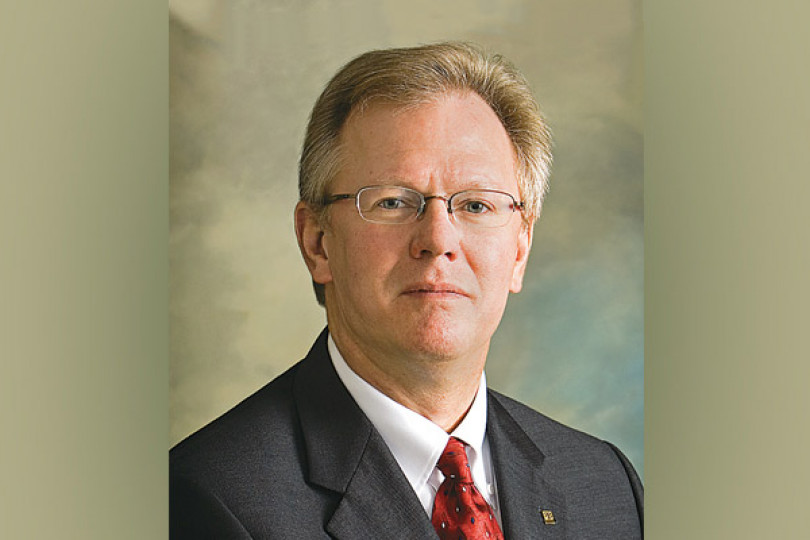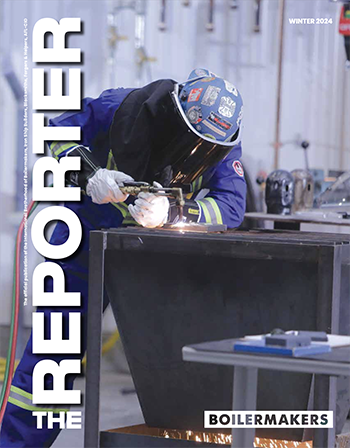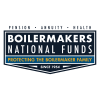In politics, the war is never won. The individual battles are what matter most.
Employee Free Choice must be our first priority
THE ACHIEVEMENTS OF organized labor in recent elections have been nothing short of magnificent. Many in the media and in politics openly acknowledge that it was labor that made the difference in building pro-worker majorities in the U.S. House and U.S. Senate — and it was labor that helped lift union-friendly Barack Obama into the White House.
I have no doubt that these things are true. I also have no doubt that what has been gained can be lost. In politics, the war is never won. The individual battles are what matter most. Administrations come and go, politicians move on, laws and policies are subject to change. What remains constant are the issues of our members and their families — good jobs, a safe workplace, affordable healthcare, and a fair opportunity to live the American dream.
We must capitalize on our successes now, while we have pro-worker majorities in Congress and a president who cares strongly about the middle class. The doors of change are now open to us. Now is the time to secure a level playing field for workers and to reverse laws and policies that have stolen our jobs and put us on a path to economic ruin.
Employee Free Choice must become law
THERE IS NO higher priority for organized labor today than passing the Employee Free Choice Act. It boils down to a simple question: Will employees have the freedom to form a union, or will employers be allowed to coerce and intimidate workers to keep unions out?
Will employees have the freedom to form a union, or will employers be allowed to coerce and intimidate workers to keep unions out?
For decades we have seen employers fire workers who actively support union organizing drives. We have seen company supervisors meet one-on-one with employees to trash-talk unions and bully workers into submission. We have seen employers bring in union-busting consultants to threaten employees and undermine organizing efforts. Even when workers maneuver through these minefields and win union recognition, employers often make it impossible to gain a first contract. Although many of these employer actions are illegal, the penalties are so minor as to be laughable. According to the National Labor Relations Board, there were nearly 30,000 instances of illegal firings and other violations to worker rights in 2007 alone.
Is it any wonder that things have become so lopsided in this country? The heads of failing companies walk away with multi-million-dollar bonuses while their employees walk away with pink slips. The middle class — the bastion of the American dream — is shriveling away.
The Employee Free Choice Act will remove obstacles to employees freely deciding whether to form a union. The act will establish meaningful penalties to discourage employers from wantonly breaking the law. And the act will offer mediation and arbitration to help secure a first contract between the employees and the employer. These are logical, fair steps designed to create a level playing field.
A strong union movement lifts up not only its members but all workers. It raises the bar for wages, benefits, and working conditions. It builds the middle class. According to a recent report from the Center for American Progress, “Increasing unionization is a good way to get out of our current economic troubles.” That’s because unionized workers have more money to spend than nonunion workers, and consumer spending is a key factor in our economic well-being.
Free Choice foes resort to misinformation
ANTI-UNION GROUPS fear the Employee Free Choice Act. They would much prefer that things stay the same as they are now — no matter how one-sided, how unfair, how damaging to the middle class.
These groups have resorted to a campaign of distortion to misrepresent Free Choice. Can you imagine big corporations, right-to-work politicians, and the Chamber of Commerce actually sticking up for the little guy? That’s what they would have you believe when they claim the Employee Free Choice Act would take away workers’ right to a secret ballot election.
The truth, not surprisingly, is the opposite. If Employee Free Choice becomes law, workers will get to choose whether they have a secret ballot election. Under current law, the companies get to make that choice.
Some employers have allowed union recognition based on a majority sign-up procedure, without an election. At AT&T Wireless, for example, more than 20,000 employees joined a union using this process.
But the vast majority of companies demand an election, because they know that gives them time to hire union-busting consultants, hold captive-audience meetings, and harass or fire workers who are openly prounion. These intimidation tactics are very powerful and often effective. That’s why corporations want to hold onto the power to decide – rather than give workers their free choice.
Perhaps the most insulting aspect of the corporate campaign against free choice for workers is their claim that this law will encourage unions to coerce workers into signing the cards. Big corporations know something about coercion, having been guilty of it tens of thousands of times every year for many decades. But if those employers truly cared about workers, they would listen to their own human resource research group – the HR Policy Association. This pro-business group found only 42 instances of actual union misconduct in authorization card signing since 1935 — less than one case every two years.
How does 42 instances in more than 70 years compare to the 30,000 complaints of employer coercion filed in 2007 alone?
Boilermakers are in this fight
BOILERMAKERS ARE HEAVILY engaged in the fight to pass the Employee Free Choice Act. At our recent Legislative Education-Action Program (LEAP) conference, scores of delegates lobbied members of Congress to support the measure. Local unions are stepping up to educate and inform members about the importance of the bill. Many individual members and staff have contributed to “Turn Around America,” a fund designed to promote the Employee Free Choice Act. Still more have written letters and signed petitions to urge their elected representatives to support the bill.
In the 2008 elections, we saw the resurgent power of organized labor. And we saw how effective the Boilermakers can be in pushing issues and helping candidates get elected. I had the honor at LEAP to recognize 56 “superstars,” members and staff whose political activism went well beyond what might have been expected. With this kind of energy and commitment, and with our dynamic Department of Government Affairs at work in Washington, D.C., I am confident our union will do its part in the struggle to pass the Employee Free Choice Act.
Opportunities await. The doors of change are open. Let’s build on our political successes.
What EMPLOYEE FREE CHOICE means for WORKERS
- Allows workers themselves to determine whether to choose an NLRB-run secret ballot election OR majority sign-up (card check). Currently the employer makes the decision.
- Establishes harsher penalties for employers who break the law in an effort to deny workers their legal right to form a union, including triple back pay for illegally firing workers.
- Provides for mediation and if necessary binding arbitration in first-contract disputes to prevent intentional delaying tactics by employers and union-busting consultants.
Why we need EMPLOYEE FREE CHOICE
- Every 23 minutes an American worker is fired or disciplined for union activity.
- 92% of companies force employees to attend mandatory closed-door meetings against the union.
- 75% of employers hire union-busting consultants to fight organizing drives.
- There is a 1 in 5 chance that an active union supporter will be illegally fired for union activity during an organizing campaign.
- If given the free choice, 60 million workers would choose to be represented by a union.






